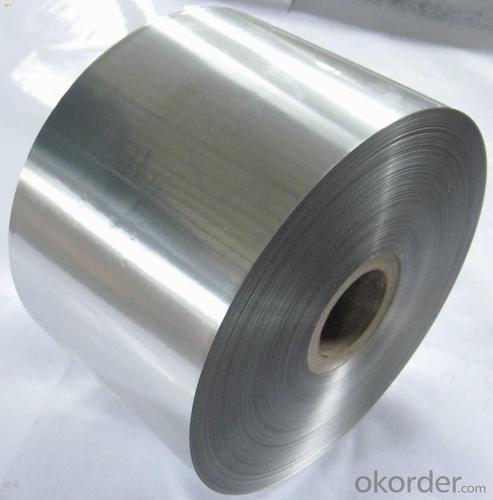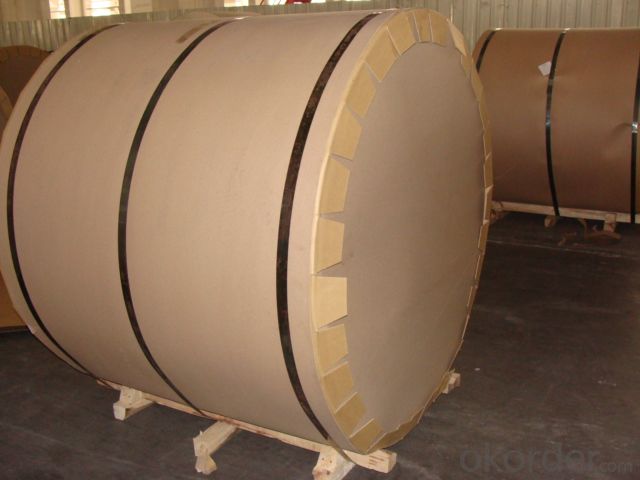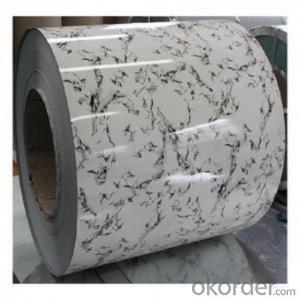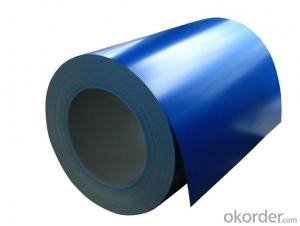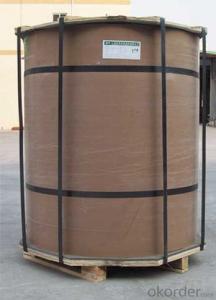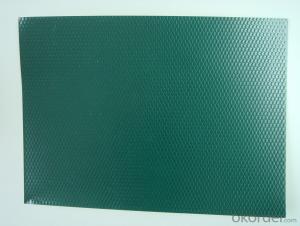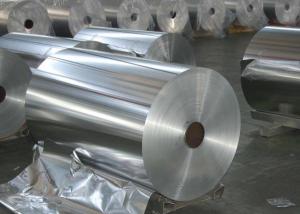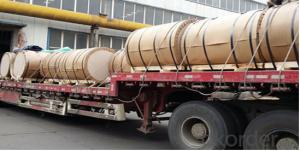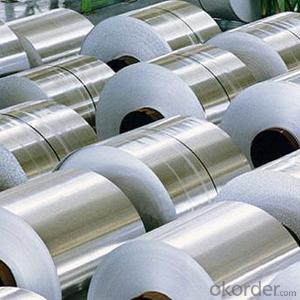Perforated AA3003 Aluminum Coil Stock for Construction
- Loading Port:
- Shanghai
- Payment Terms:
- TT OR LC
- Min Order Qty:
- 5 m.t.
- Supply Capability:
- 10000 m.t./month
OKorder Service Pledge
OKorder Financial Service
You Might Also Like
1.Structure of AA3003 Aluminum Coils used for Construction Description
AA3003 Aluminum Coils used for Construction has great ductility, heat conductivity, anti-corrosion and moisture resistance properties.
AA3003 Aluminum Coils used for Construction is widely used for PP cap stock, hot rolled thick plate, PS base plate, aluminum curtain wall base plate, the traffic sign ,air-conditioner heat and exchangers, food container, household foil, pharmaceutical packing, cigarettes packing.
2.Main Features of AA3003 Aluminum Coils used for Construction
• Superior quality of raw material
• Reasonable and stable chemical composition
• Accurate tolerance
• Goode mechanical property
3.AA3003 Aluminum Coils used for Construction Images
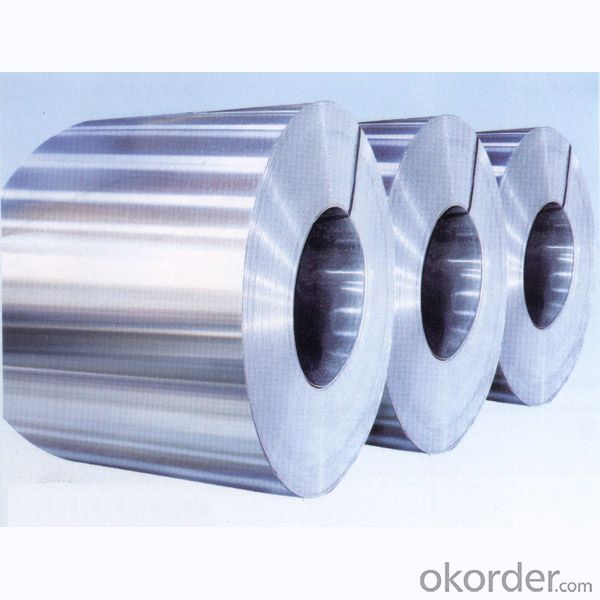
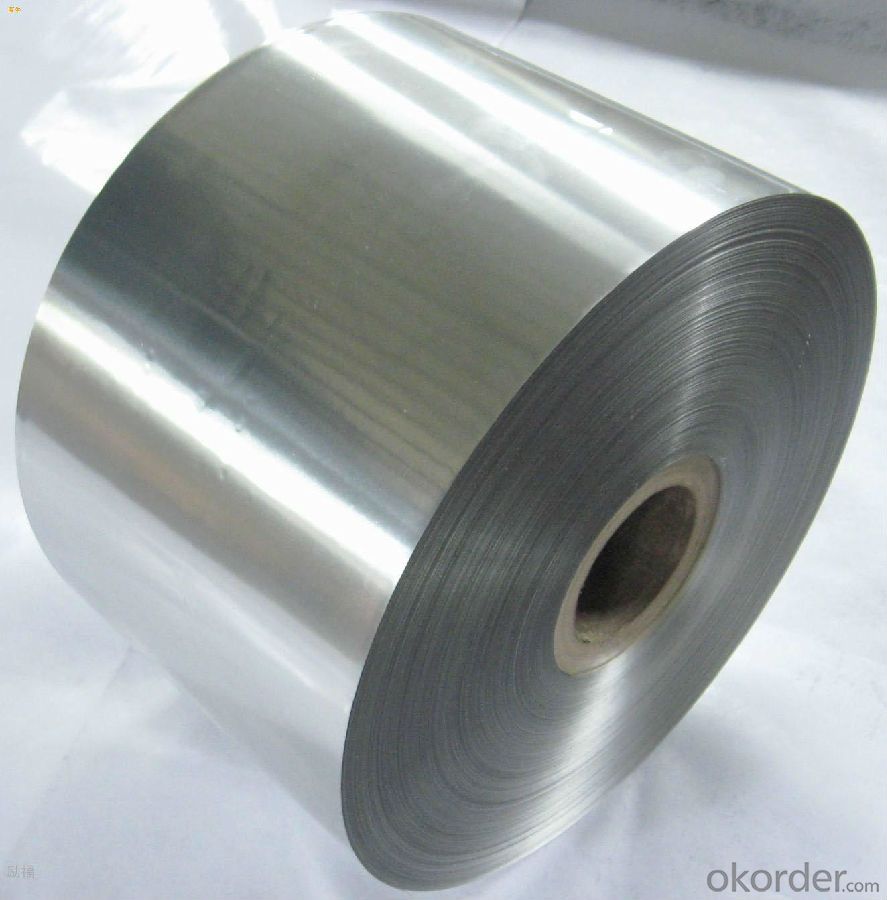
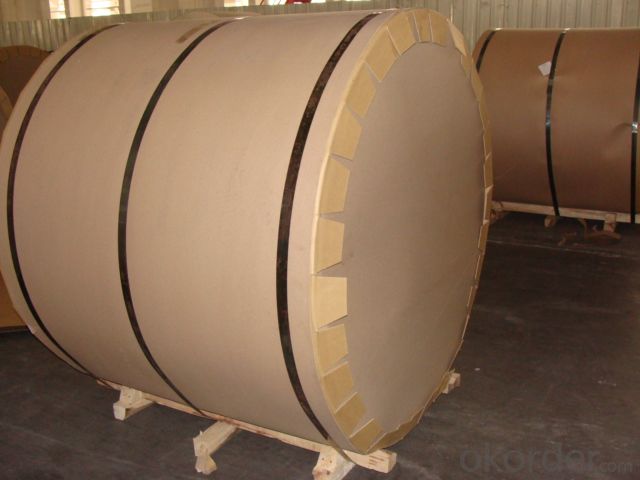
4.AA3003 Aluminum Coils used for Construction Specification
Alloy | A3003 |
Temper | H14, H16, H18, H22, H24, H26, H32, O/F |
Thickness | 0.2mm -- 100mm |
Width | 30mm -- 1700mm |
Standard | GB/T 3880-2006,EN |
5. FAQ of AA3003 Aluminum Coils used for Construction
A.How to guarantee the quality?
Customers are welcome to our mill to visit and check the products. Besides, we can arrange a third party to test AA3003 Aluminum Coils used for Construction.
B. Now which countries do you export your goods?
Now we export to South East Asia,Africa, North America,South America ect.
- Q: How do aluminum coils contribute to the sound insulation of buildings?
- Aluminum coils contribute to the sound insulation of buildings by acting as a barrier or shield against sound transmission. The coils are often used in the construction of windows, doors, and other building components to dampen or block noise from entering or exiting a space. Their properties, such as their density and ability to reflect or absorb sound waves, help reduce the level of noise that can pass through the building envelope, resulting in improved sound insulation.
- Q: Can aluminum coil 3003H24 replace 3A21H14?
- Yes.
- Q: Is it possible to use aluminum coils for storage purposes?
- <p>Yes, aluminum coils can be used for storage, particularly for certain applications. They are often used in HVAC systems and electrical wiring due to their conductivity and flexibility. For general storage, aluminum coils may be suitable for winding and storing cables, wires, or similar materials. However, for storing items that require a specific environment or have weight concerns, it's important to consider the coil's strength and whether it can provide the necessary support and protection. Always ensure that the storage method complies with safety standards and the material's properties.</p>
- Q: Is it possible to utilize a press machine to bend aluminum coils?
- <p>Yes, you can use a press to bend aluminum coils. Presses are versatile machines capable of bending various materials, including aluminum. However, it's crucial to select the appropriate press type and size for the specific coil dimensions and desired bend. Additionally, ensure the press has the necessary tonnage to handle the bending force required for aluminum. Using the right dies and lubrication can also improve the bending process and prevent damage to the coils. Always follow safety guidelines and consult with equipment specifications to ensure the press is suitable for bending aluminum.</p>
- Q: What is the typical yield strength of aluminum coils?
- The typical yield strength of aluminum coils can vary depending on the specific alloy and temper used. However, for many common aluminum alloys, the yield strength typically ranges from 15,000 psi to 40,000 psi (100 MPa to 275 MPa). It is important to note that this is a general range, and there can be variations within different aluminum coil products. Additionally, the yield strength can also be influenced by factors such as the thickness and processing conditions of the coil.
- Q: Are aluminum coils suitable for heat exchangers?
- Yes, aluminum coils are suitable for heat exchangers. Aluminum has excellent thermal conductivity, corrosion resistance, and lightweight properties, making it an ideal material for heat transfer applications. Aluminum coils can efficiently transfer heat between fluids in heat exchangers, making them a popular choice in various industries.
- Q: who discovered aluminum and in what year did they discover it?
- discovered by Sir Humphrey Davy in 1808 Sir Humphrey Davy was from Britain he also named it Aluminum as its name xD
- Q: what is aluminium toxic amount on a human's general physiological system? and what is the usual amount aluminium injested?thankyou
- Go okorder /
- Q: How do aluminum coils compare to copper coils?
- Aluminum coils are generally lighter and less expensive than copper coils, but they have lower thermal conductivity and may require larger coil sizes. Copper coils, on the other hand, have superior heat transfer properties, making them more efficient for cooling or heating applications.
- Q: Are there any fire safety considerations when using aluminum coils?
- Yes, there are fire safety considerations when using aluminum coils. Aluminum is a highly flammable material and can ignite under certain conditions, such as exposure to high temperatures or direct contact with an open flame. Therefore, it is important to ensure proper insulation and ventilation when using aluminum coils to prevent the risk of fire. Additionally, regular inspections and maintenance should be carried out to identify any potential fire hazards and address them promptly.
Send your message to us
Perforated AA3003 Aluminum Coil Stock for Construction
- Loading Port:
- Shanghai
- Payment Terms:
- TT OR LC
- Min Order Qty:
- 5 m.t.
- Supply Capability:
- 10000 m.t./month
OKorder Service Pledge
OKorder Financial Service
Similar products
Hot products
Hot Searches
Related keywords



